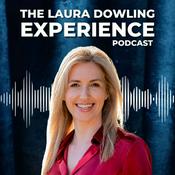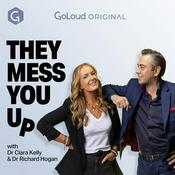231 episodes
REMIX: Why we over-shop and compulsively acquire, and how to stop, with Dr Jan Eppingstall
09/1/2026 | 1h 1 mins.Come to a Dehoarding Accountability Zoom Session: http://www.overcomecompulsivehoarding.co.uk/ticket
Subscribe to the podcast: https://www.overcomecompulsivehoarding.co.uk/subscribe
Podcast show notes, links and transcript: http://www.overcomecompulsivehoarding.co.uk/
At this time of year, January sales are blazing and resisting a bargain can be tough. Listen back to this discussion with Dr Jan Eppingstall about compulsive acquiring and over-shopping, and find the full show notes and transcript here: https://www.overcomecompulsivehoarding.co.uk/podcast-ep-54-compulsive-acquiring-and-hoarding-how-to-stop-with-dr-jan-eppingstall/- Come to a Dehoarding Accountability Zoom Session: http://www.overcomecompulsivehoarding.co.uk/ticket
Subscribe to the podcast: https://www.overcomecompulsivehoarding.co.uk/subscribe
Podcast show notes, links and transcript: http://www.overcomecompulsivehoarding.co.uk/
Relisten to an incredibly useful conversation with therapist Jenna Overbaugh, who treats people with OCD and has it herself, about how OCD and hoarding can interlink. See the full show notes and transcript here: https://www.overcomecompulsivehoarding.co.uk/podcast-ep-56-ocd-and-hoarding-with-jenna-overbaugh/ REMIX: Therapy and hoarding disorder - what are the options? With Dr Jan Eppingstall
26/12/2025 | 1h 18 mins.Come to a Dehoarding Accountability Zoom Session: http://www.overcomecompulsivehoarding.co.uk/ticket
Subscribe to the podcast: https://www.overcomecompulsivehoarding.co.uk/subscribe
Podcast show notes, links and transcript: http://www.overcomecompulsivehoarding.co.uk/
Revisit this informative episode with Dr Jan Eppingstall, who walks us through a range of therapy options for people who hoard. For the full show notes and transcript, see here: https://www.overcomecompulsivehoarding.co.uk/podcast-ep-33-different-types-of-therapy-for-hoarding-disorder-with-dr-jan-eppingstall/- Come to a Dehoarding Accountability Zoom Session: http://www.overcomecompulsivehoarding.co.uk/ticket
Subscribe to the podcast: https://www.overcomecompulsivehoarding.co.uk/subscribe
Podcast show notes, links and transcript: http://www.overcomecompulsivehoarding.co.uk/
Enjoy this deep dive into the research of Sharon Morein into hoarding and ADHD. For the full show notes and transcript, see here: https://www.overcomecompulsivehoarding.co.uk/podcast-ep-40-adhd-and-hoarding-with-dr-sharon-morein/ #207 13 actionable pieces of mental health advice from six former podcast guests
12/12/2025 | 53 mins.Come to a Dehoarding Accountability Zoom Session: http://www.overcomecompulsivehoarding.co.uk/ticket
Subscribe to the podcast: https://www.overcomecompulsivehoarding.co.uk/subscribe
Podcast show notes, links and transcript: http://www.overcomecompulsivehoarding.co.uk/
This episode, I’ve pulled together the best mental health advice from every guest I spoke to over the past year - academics, therapists, organisers, and people with lived experience. Each of them shared a personal habit or practice that genuinely helps them cope or keep on top of their wellbeing, and I add a couple of my own strategies too.
Whether you’re navigating hoarding, supporting someone who is, or just looking for affordable ways to protect your own mental health, stick around for a mix of practical, honest tips to try for yourself.
Special Episode Format: Compilation of Guest Advice
Throughout the year, every guest was asked about habits or practices supporting their mental health.
Guest Contributions: Mental Health Habits and Practices
Harriet Impey (Episode 172)
Mindfulness and meditation, especially mindful self-compassion (inspired by Kristin Neff).
Practical examples: Being present, guided meditation, practicing non-attachment, and self-reflection on letting go of unhelpful arguments.
Dr Jan Eppingstall (Episodes 174 & 204)
Practicing gratitude to counterbalance negativity bias.
Unsubscribing from unwanted emails to reduce anxiety and overwhelm.
Interacting with pets for grounding and emotional well-being - petting animals as a stress reliever.
Visiting places where animals are accessible (e.g., city farms, pet shops, animal cafes).
Jasmine Sleigh (Episode 175)
Importance of good sleep for mental health.
Value of pleasurable activities like reading, and the paradox of sometimes resisting enjoyable activities (self-sabotage).
Reflection on how engaging in enjoyable pastimes is essential even when it's difficult to get started.
Sam (Episode 178)
Writing things down: Keeping lists of achievements and things to be grateful for, even small joys.
Acknowledging how gratitude doesn’t have to be grand - simple moments count.
Exercise, particularly running, or any activity that gets you outside of your current headspace (could be walking, volunteering, etc.).
The role of support from others to prompt new perspectives or activities.
Dr. Victoria Ruby-Granger (Episode 179)
Self-awareness and accepting what works for you, rather than trying to fit yourself to methods that don’t suit.
Emphasis on letting go of approaches that don’t align with your own needs, and being open to alternative strategies.
Carrie Lagerstedt (Episode 183)
Moral neutrality: Separating self-worth from issues like executive dysfunction, lateness, and messiness.
Reframing these traits as value-neutral rather than personal failings, helping to build self-esteem.
That Hoarder
Creative self-expression: Resentful journaling, collage, and visual arts—done primarily for personal expression, not for others’ approval.
Permission for creative works to be imperfect and focused on process over outcome.
Nature connection: Getting outside, paying attention to natural details (flowers, leaves, colours, wildlife), and practicing mindful observation to foster grounding and perspective.
Importance of self-compassion, giving oneself credit for small achievements (especially with meditation or walks).
Allowing yourself pleasurable, nurturing, or healing activities without guilt.
Noticing the bigger world and natural cycles as a counter to internal struggles.
Encouragement for listeners to reflect on which practices resonate and to share their own tips.
Links
Podcast ep 172: Harriet Impey on clearing out her parents’ very full home, through family belongings and personal growth, in the film Where Dragons Live
Podcast episode 174: How to feel grounded when we’re overwhelmed or dysregulated using ventral vagal spaces and touchstones, with Dr Jan Eppingstall
Podcast ep 175: Taking the scary first steps: the courage to call a professional organiser, with Jasmine Sleigh
Podcast ep 178: Growing up in a hoarded home: Sam’s story as the child of a Mum who hoards
Podcast ep 179: How hoarding behaviours develop and early intervention for hoarding disorder, with Dr Victoria Ruby-Granger
Podcast ep 183: ADHD, executive dysfunction and creating hacks and systems to reduce clutter chaos, with Carrie Lagerstedt
Podcast ep 204: Am I my things? When possessions define us: the psychological connection between identity, self-concept and hoarding with Dr Jan Eppingstall
Come to a Dehoarding Accountability Zoom session: Accountability Booking Form
Website: Overcome Compulsive Hoarding
Become a Dehoarding Darling
Submit a topic for the podcast to cover
Questions to ask when dehoarding: https://www.overcomecompulsivehoarding.co.uk/podquestions
Instagram: @thathoarderpodcast
Twitter: @ThatHoarder
Mastodon: @[email protected]
TikTok: @thathoarderpodcast
Facebook: Overcome Compulsive Hoarding with That Hoarder
Pinterest: That Hoarder
YouTube: Overcome Compulsive Hoarding with That Hoarder
Reddit: Overcome Compulsive Hoarding with That Hoarder subreddit
Help out: Support this project
Sponsor the podcast
Subscribe to the podcast
Subscribe to the podcast here
More Health & Wellness podcasts
Trending Health & Wellness podcasts
About That Hoarder: Overcome Compulsive Hoarding
Hoarding disorder is stigmatised and people who hoard feel vast amounts of shame. This podcast began life as an audio diary, an anonymous outlet for somebody with this weird condition. That Hoarder speaks about her experiences living with compulsive hoarding, she interviews therapists, academics, researchers, children of hoarders, professional organisers and influencers, and she shares insight and tips for others with the problem. Listened to by people who hoard as well as those who love them and those who work with them, Overcome Compulsive Hoarding with That Hoarder aims to shatter the stigma, share the truth and speak openly and honestly to improve lives.
Podcast websiteListen to That Hoarder: Overcome Compulsive Hoarding, The Daily Meditation with Brother Richard and many other podcasts from around the world with the radio.net app

Get the free radio.net app
- Stations and podcasts to bookmark
- Stream via Wi-Fi or Bluetooth
- Supports Carplay & Android Auto
- Many other app features
Get the free radio.net app
- Stations and podcasts to bookmark
- Stream via Wi-Fi or Bluetooth
- Supports Carplay & Android Auto
- Many other app features


That Hoarder: Overcome Compulsive Hoarding
Scan code,
download the app,
start listening.
download the app,
start listening.








































